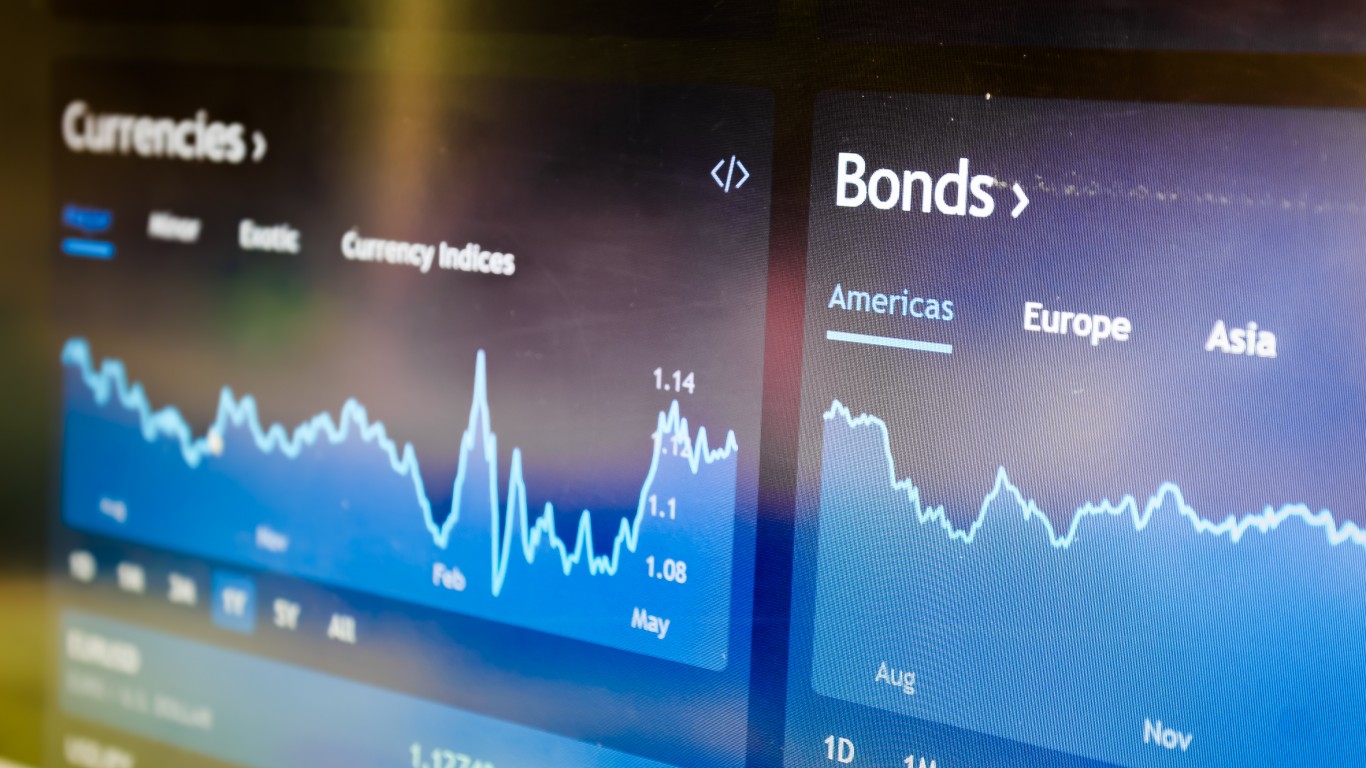

Investors love dividend stocks because they provide dependable income and give investors a great opportunity for solid total return. Total return includes interest, capital gains, dividends, and distributions realized over time. In other words, the total return on an investment or a portfolio consists of income and stock appreciation.
At 247 Wall St., we always like to remind our readers about the impact total return has on portfolios because it is one of the best ways to help improve the chances for overall investing success. Again, total return is the combined increase in a stock’s value plus dividends.
For example, if you buy a stock at $20 that pays a 3% dividend, and it goes up to $22 in a year, your total return is 13%—10% for the increase in stock price and 3% for the dividends paid.
We screened our 24/7 Wall St. ultra-yield dividend universe, looking for stocks that pay 10% and higher dividends and are total return champions. Five made the list, and all of them make sense for investors.
Apollo Commercial Real Estate

Paying a significant 11.75% dividend and close to a share breakout is an excellent idea for investors with higher risk tolerance. Apollo Commercial Real Estate Finance Inc. (NYSE: ARI) operates as a real estate investment trust (REIT) that originates, acquires, invests in and manages:
- Commercial first mortgage loans
- Subordinate financings
- Other commercial real estate-related debt investments in the United States.
It is qualified as a REIT under the Internal Revenue Code. As a REIT, it would not be subject to federal income taxes if the company distributes at least 90% of its REIT taxable income to its stockholders.
Arbor Realty Trust

This company trades at a ridiculous 7.1 times 2024 earnings and pays a massive 13.39% dividend. Arbor Realty Trust (NYSE: ABR) invests in a diversified portfolio of structured finance assets in the multifamily, single-family rental, and commercial real estate markets in the United States.
The company operates in two segments:
- Structured Business
- Agency Business.
Arbor Realty Trust primarily invests in:
- Bridge and mezzanine loans
- Junior participating interests in first mortgages and preferred and direct equity
- Real estate-related joint ventures, actual estate-related notes, and various mortgage-related securities
The company offers:
- Bridge financing products to borrowers who seek short-term capital to be used in the acquisition of property
- Financing by making preferred equity investments in entities that directly or indirectly own real property
- Mezzanine financing in the form of loans that are subordinate to a conventional first mortgage loan and senior to the borrower’s equity in a transaction
- Junior participation financing in the form of a junior participating interest in the senior debt
- Financing products to borrowers who are looking to acquire conventional, workforce, and affordable single-family housing.
Further, it underwrites, originates, sells, and services multifamily mortgage loans through conduit/commercial mortgage-backed securities programs.
Barings BDC

This business development company is an industry leader and pays a giant 11.74% dividend. Barings BDC, Inc. (NYSE: BBDC) is a publicly traded, externally managed investment company elected to be treated as a business development company under the Investment Company Act 1940.
It seeks to invest primarily in:
- Senior secured loans
- First lien debt
- Unitranche,
- Second lien debt
- Subordinated debt
- Equity co-investments
- Senior secured private debt investments in private middle-market companies operating across various industries
It specializes in:
- Mezzanine,
- Leveraged buyouts
- Management buyouts
- ESOPs
- Change of control transactions
- Acquisition financings
- Growth financing
- Recapitalizations in lower-middle market, mature, and later-stage companies
It invests in manufacturing and distribution, business services and technology, transportation and logistics, and consumer products and services. It invests in the United States in companies with EBITDA of $10 million to $75 million, typically in private equity sponsor-backed.
Chicago Atlantic Real Estate Finance

While somewhat off-the-radar, this company offers total return potential and a massive 11.82% dividend. Chicago Atlantic Real Estate Finance, Inc. (NASDAQ: REFI) operates as a commercial real estate finance company in the United States.
It originates, structures, and invests in first mortgage loans and alternative structured financings secured by commercial real estate properties.
The company offers senior loans to state-licensed operators in the cannabis industry. It has elected to be taxed as a real estate investment trust (REIT) and would not be subject to federal corporate income taxes if it distributes at least 90% of its taxable income to its stockholders.
PennantPark Investment

This could be an outstanding total return play, and investors would receive a massive 10.70% dividend. PennantPark Investment Corporation (NASDAQ: PNNT) is a business development company.
It seeks to make secondary direct, debt, equity, and loan investments.
PennantPark seeks to invest through floating rate loans in private or thinly traded or small market-cap, public middle market companies. It primarily invests in the United States and, to a limited extent, non-U.S. companies.
The fund typically invests between $2 million and $20 million. The fund also invests in equity securities, such as preferred stock, common stock, warrants, or options received in connection with debt investments or through direct investments.
It primarily invests between $10 million and $50 million in senior secured loans and mezzanine debt.
The fund invests 30% in non-qualifying assets like investments in:
- Public companies whose securities are not thinly traded or do not have a market capitalization of less than $250 million
- Securities of middle-market companies located outside of the United States
- High-yield bonds
- Distressed debt
- Private equity
- Securities of public companies that are not thinly traded
- Investment companies as defined in the 1940 Act
Under normal conditions, the fund expects at least 80 percent of its net assets plus any borrowings for investment purposes to be invested in floating-rate loans and investments with similar economic characteristics, including cash equivalents invested in money market funds.
It expects to represent 65 percent of its portfolio through senior secured loans. In the case of floating rate loans, it holds investments for three to ten years.
Sponsored: Want to Retire Early? Here’s a Great First Step
Want retirement to come a few years earlier than you’d planned? Or are you ready to retire now, but want an extra set of eyes on your finances?
Now you can speak with up to 3 financial experts in your area for FREE. By simply clicking here you can begin to match with financial professionals who can help you build your plan to retire early. And the best part? The first conversation with them is free.
Click here to match with up to 3 financial pros who would be excited to help you make financial decisions.
Thank you for reading! Have some feedback for us?
Contact the 24/7 Wall St. editorial team.



